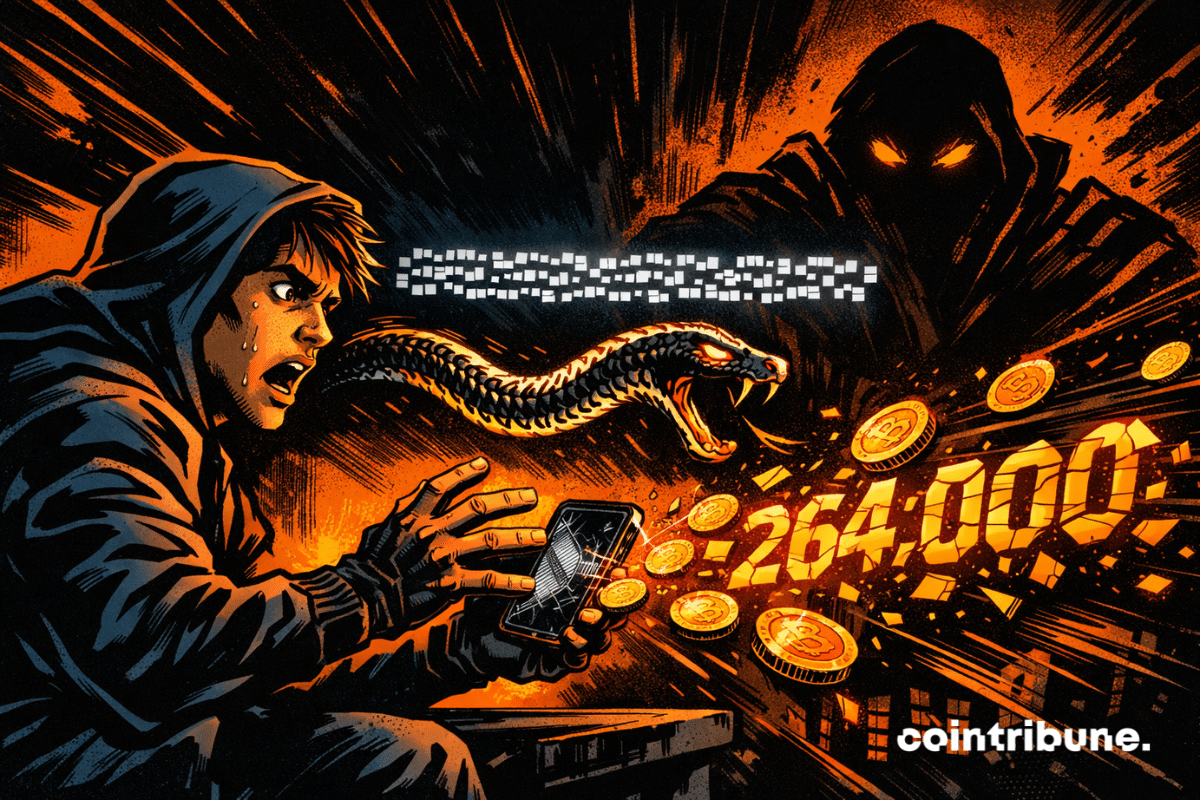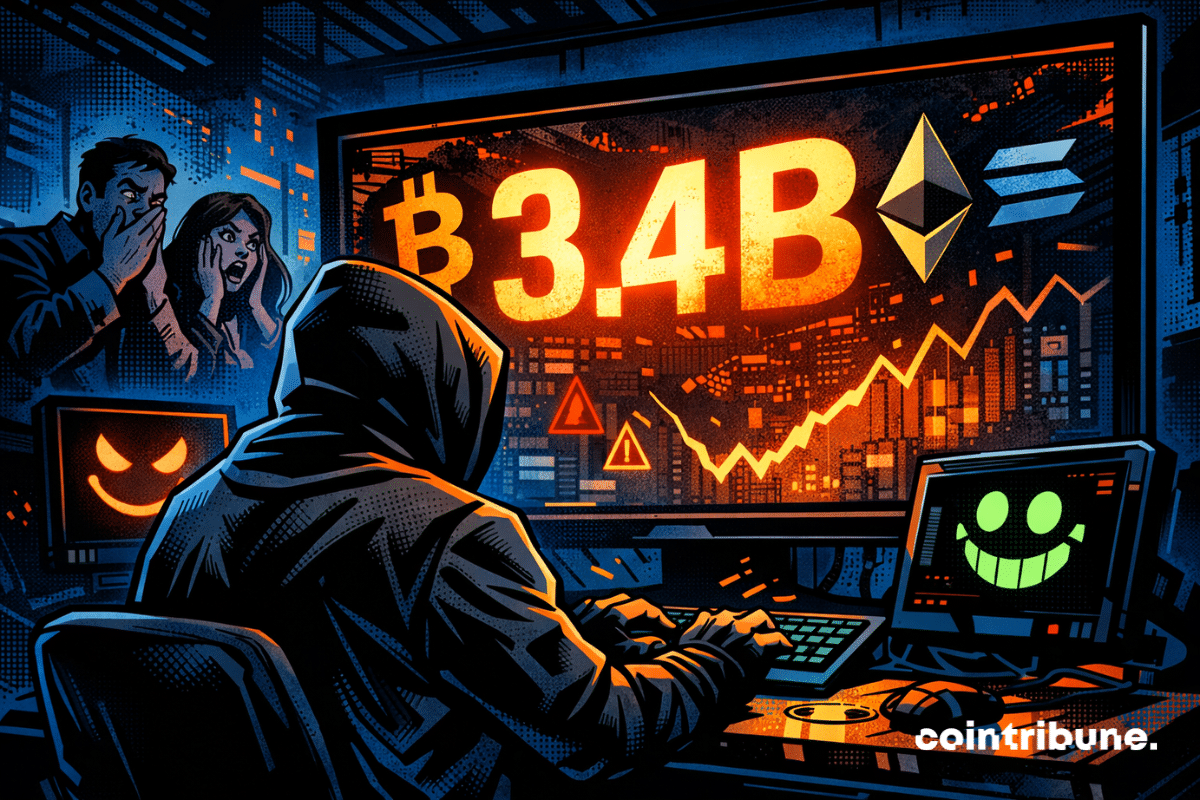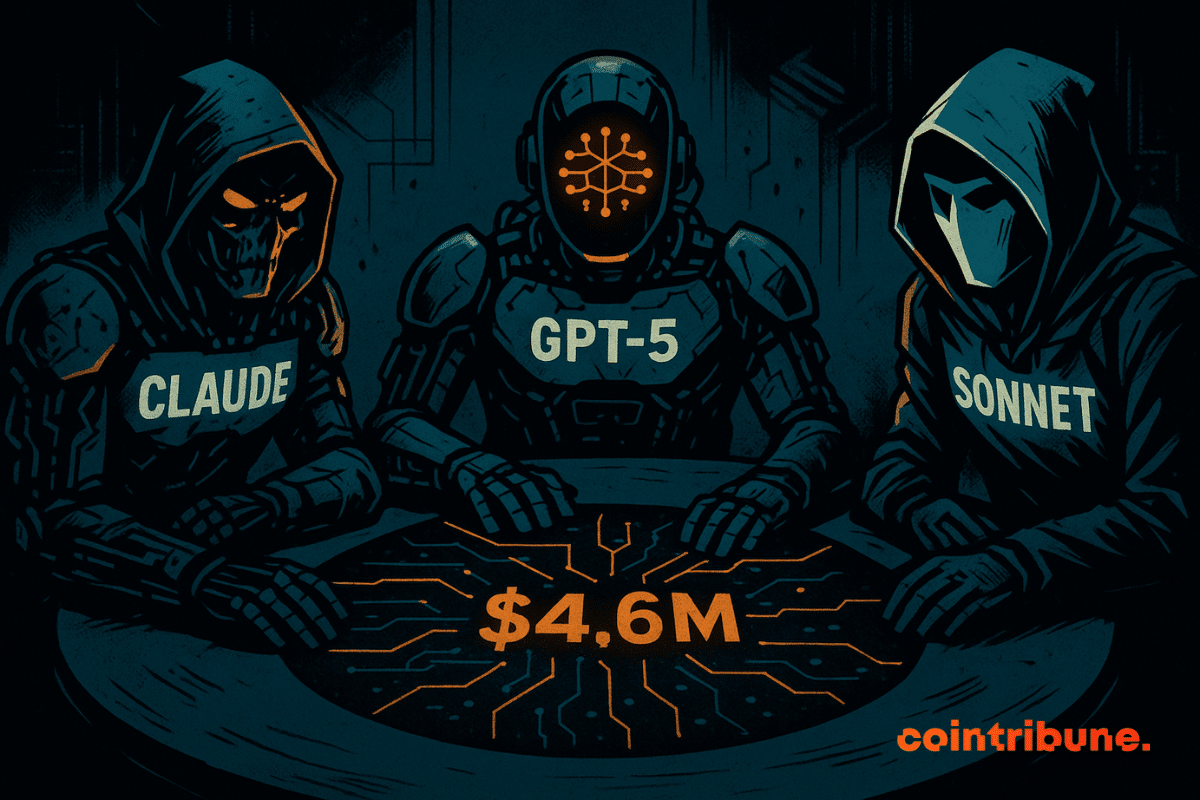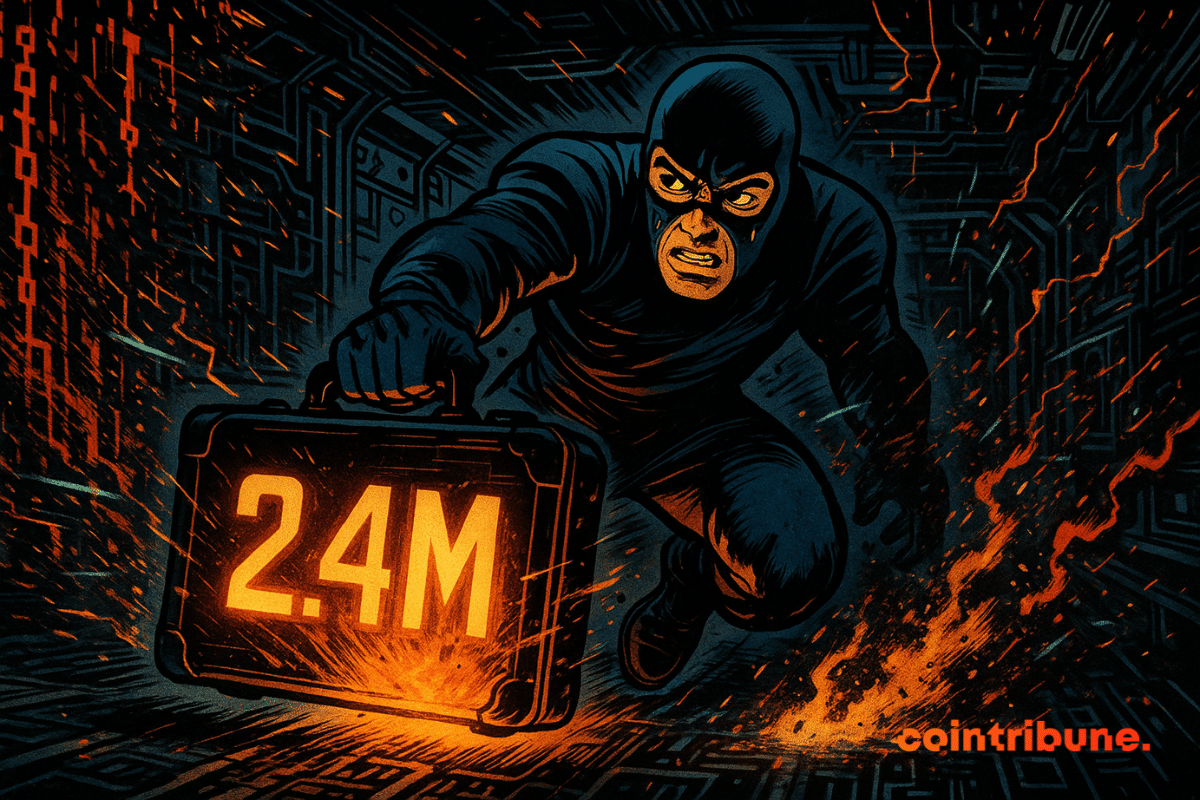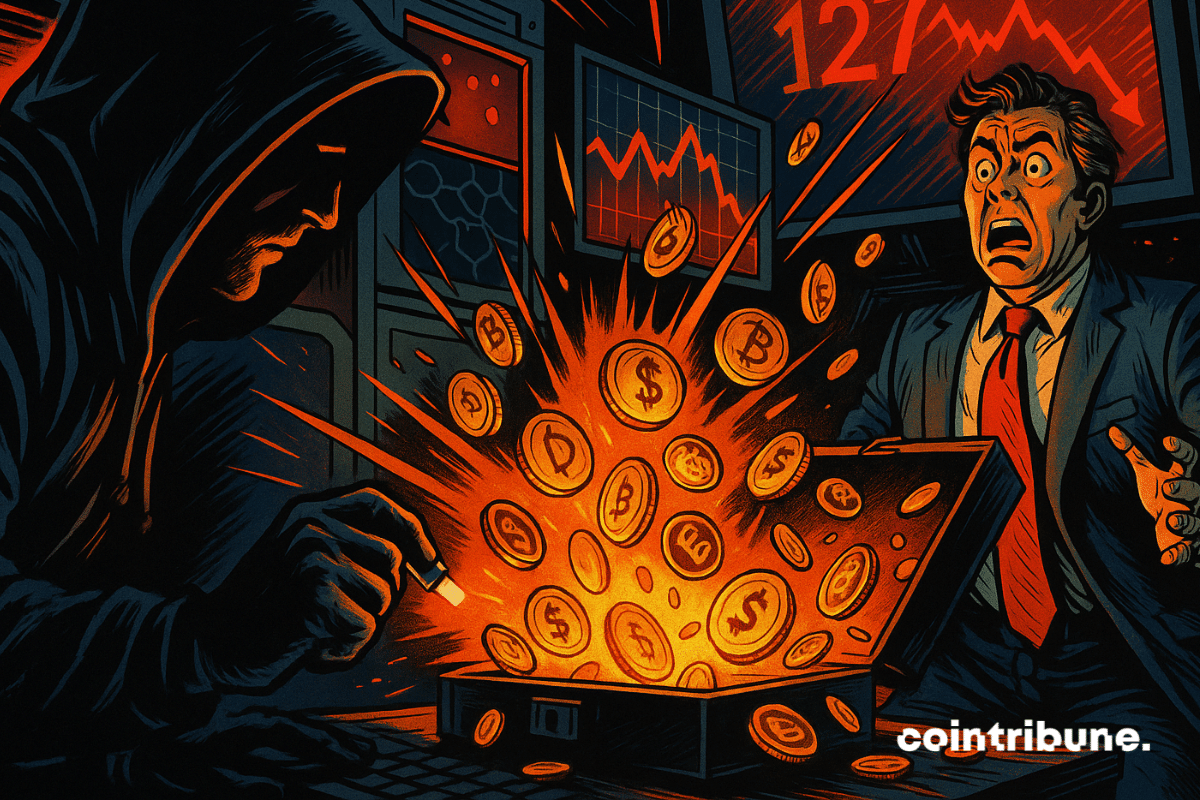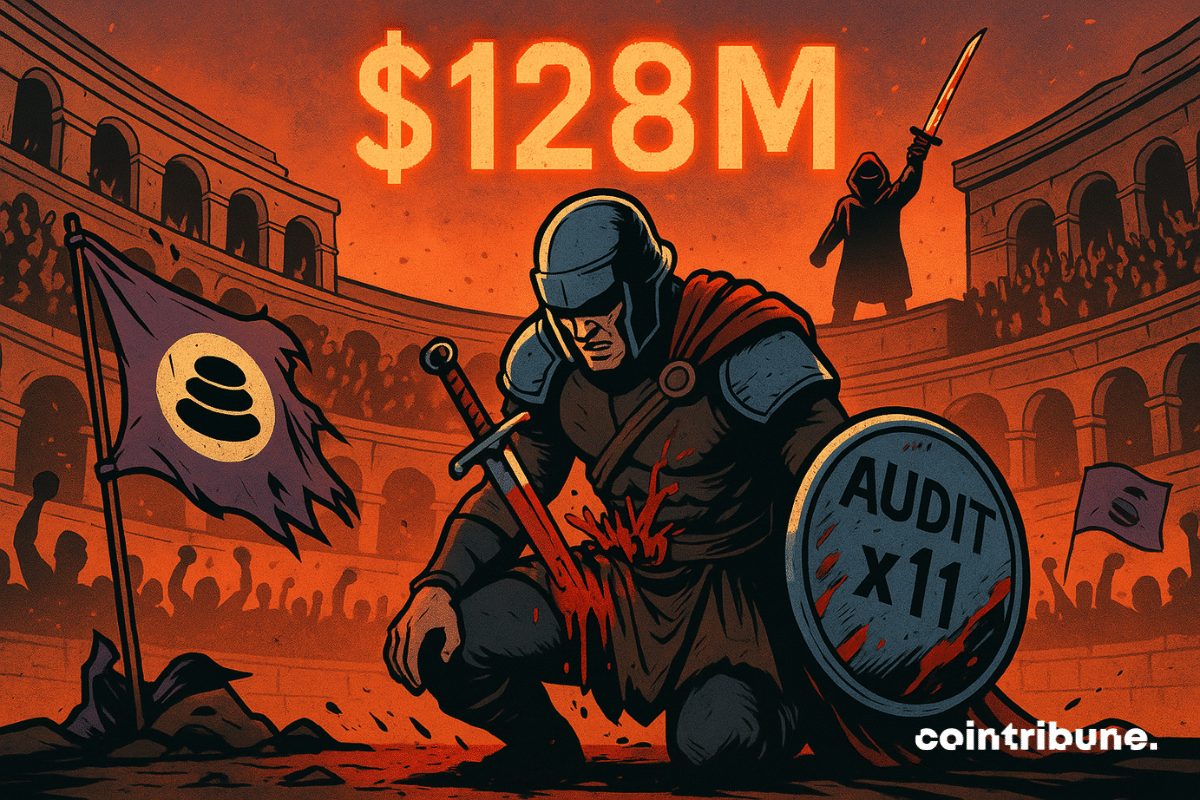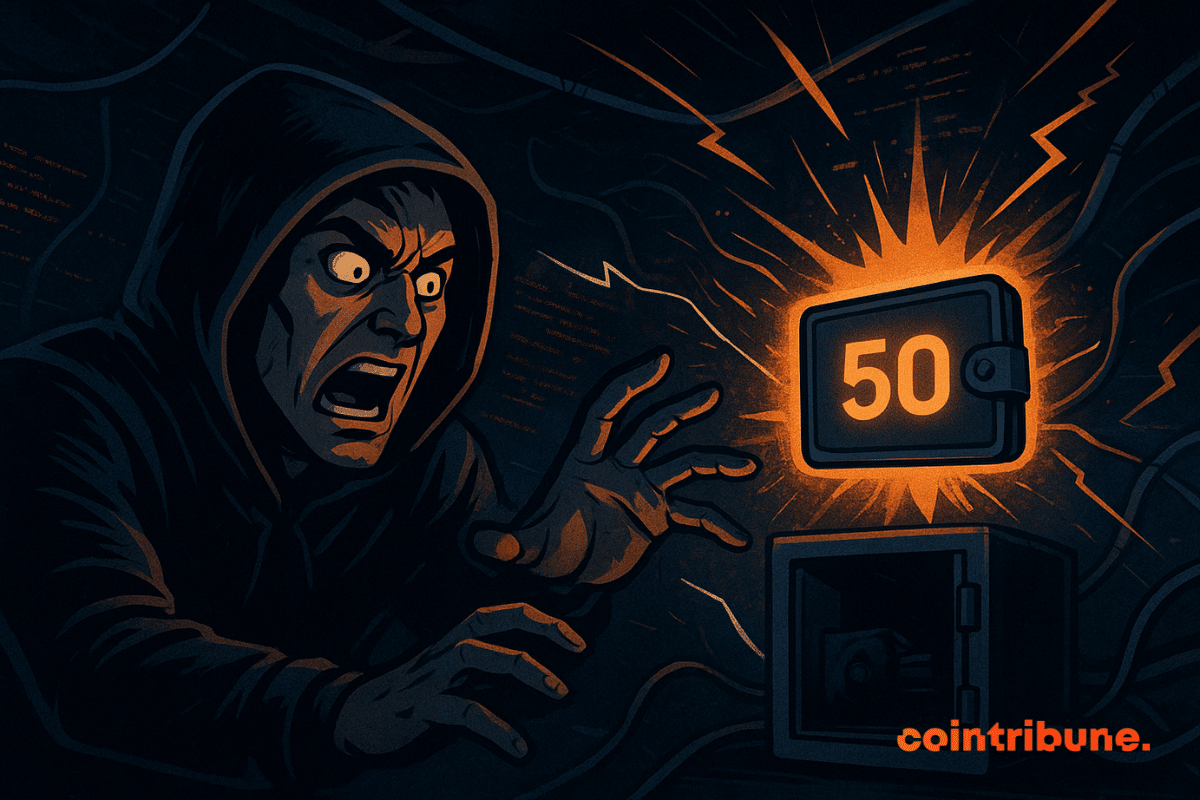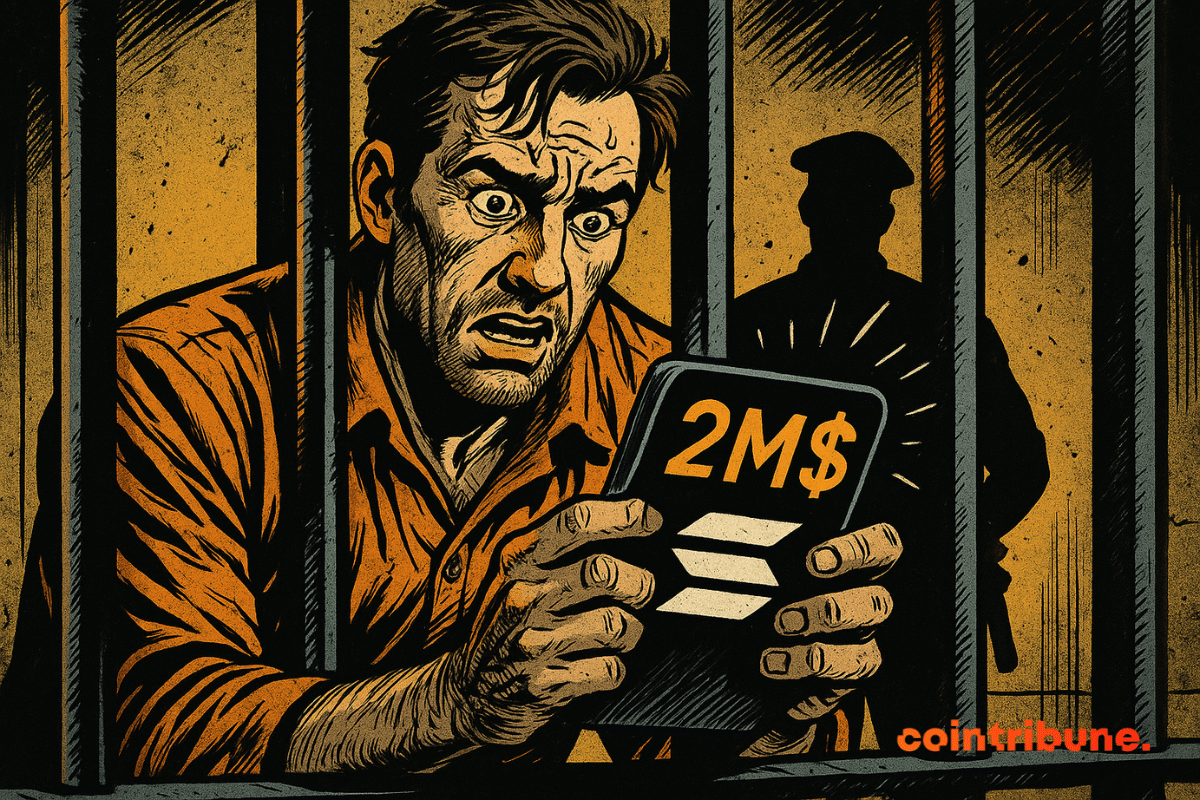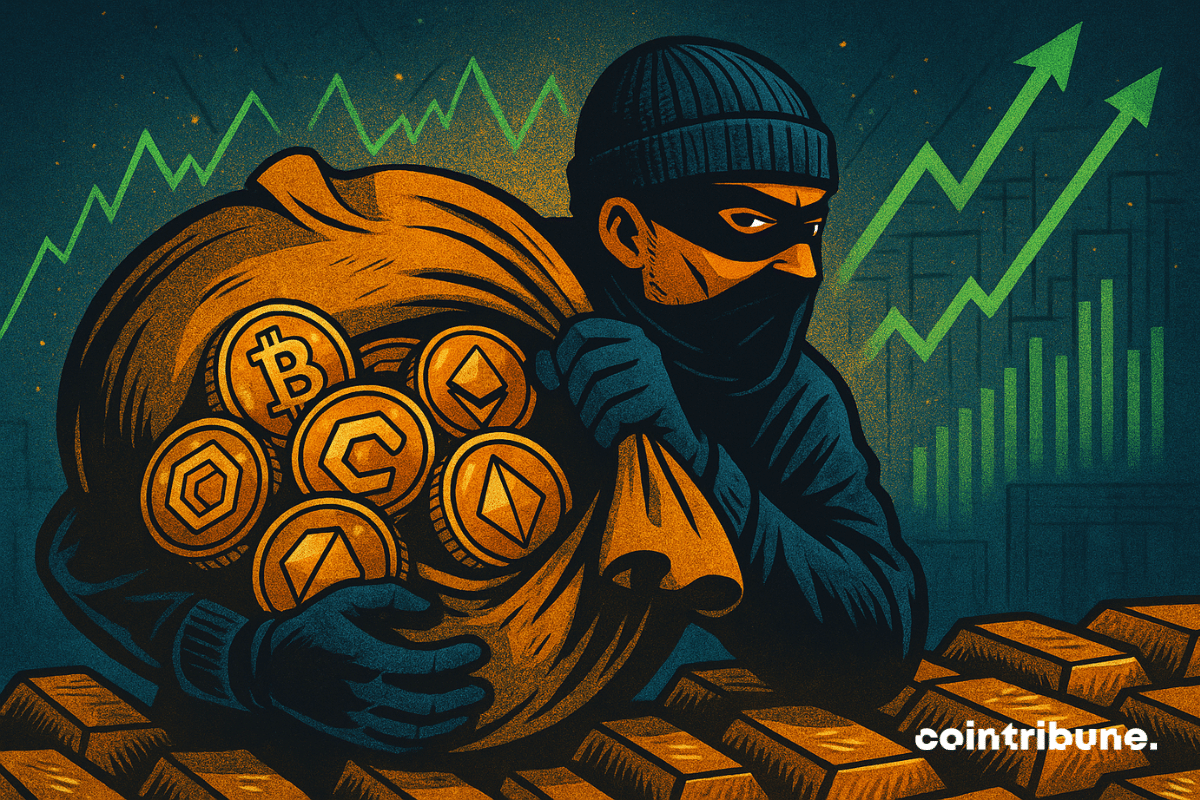Crypto security efforts across Ethereum are getting a fresh boost as scams continue to drain funds from everyday users. In response, the Ethereum Foundation has launched a new partnership aimed at reducing losses and improving real-time visibility into emerging threats across the ecosystem.
Hack
Crypto market on alert: Phantom faces controversy after a $264,000 theft. We give you all the details in this article.
Assaults, kidnappings, mutilations… Crypto theft turns physical in Europe. Discover the key figures in this article.
Crypto: a forgotten Ethereum hack becomes a secret weapon against cyber threats. We bring you all the details in this article.
A boastful hacker, a dubious federal contract, and millions in crypto gone: when family cyber-arrogance turns Washington into the stage for a burlesque digital burglary.
Ethereum is rejoicing, its counters are exploding! Except that 80% of the activity might be clever spam. Progress? Or just hackers who learned how to do sales?
The security of crypto data falters once again. The French platform Waltio, specializing in tax declarations, was the victim of a massive leak of sensitive information. In response, an investigation was opened by the French authorities, mobilizing the National Gendarmerie. This incident rekindles concerns about the vulnerability of services related to cryptos, including those outside the blockchain. As the use of tax tools becomes widespread, users' trust is severely tested.
A crypto user known as “The Smart Ape” lost about $5,000 from a hot wallet during a short hotel stay. No phishing links were opened, and no fake sites were used. Instead, a chain of small missteps created the conditions for a delayed wallet drain. Security researchers say the case shows how everyday actions, both online and offline, can combine into a serious loss.
In crypto, good resolutions never last: barely January has started, wallets are already siphoned, insiders suspected, and MetaMask emails clicking where it hurts...
Stealka malware targets browsers and crypto wallets, stealing data while disguised as game hacks and mods.
Crypto 2025: invisible hackers, billions lost, a rogue state involved... What if your wallet was the next silent victim?
Solana has resisted one of the most intense DDoS attacks ever recorded on a public blockchain, peaking at 6 terabits per second. The network remained stable, with no interruptions or notable degradation. This inadvertent test, occurring amid recurring technical tensions in the ecosystem, marks a turning point. Long criticized for its instabilities, Solana today shows robustness that could change its position in the hierarchy of decentralized infrastructures.
At PEPE, memes were promised, not malware. The result? A hacked site, emptied wallets, and a resurrected hacking tool. Everything is swimming in crypto-cacophony!
A fake developer, real spies, and US tech trapped: arrested, Vong inadvertently revealed how Pyongyang hacks America without firing a single rocket.
Once reserved for human hackers, crypto scheming has found its master: AI, which digs the hole... directly into decentralized wallets, without asking for permission!
An arithmetic bug, billions of tokens, a hurried hacker… and Yearn retrieving $2.4M in commando mode. In the crypto jungle, treasure hunts are intensifying.
A hacker, a forgotten division, and nine million vanished... The arithmetic falters, the vaults empty, and Yearn's coders mourn their yETH. Crypto drama or bad comedy?
Crypto faced a tough November, losing $127M to hacks and attacks, with DeFi platforms hit hardest and $45M recovered.
As states tighten their control over cryptos, an old bitcoin theft resurfaces amid a geopolitical rivalry. LuBian, a Chinese mining pool, reportedly lost more than 127,000 BTC in 2020. Remaining discreet for years, the case suddenly resurfaces as Beijing now accuses the United States of having seized these funds, now valued at over 14 billion dollars, through an intelligence operation. The suspicion of a state confiscation reignites tensions between two superpowers.
Balancer has just published its preliminary report on the attack that shook the DeFi protocol on November 3. A technical flaw in the V2 pools allowed hackers to siphon 128 million dollars across seven different blockchains. But the real bill is much higher: the total value locked (TVL) collapsed by 58% in just two days. How could a protocol audited eleven times fall victim to such a debacle?
Eleven audits, a brilliant architecture, but 128 million gone... The crypto-miracle Balancer falls hard. Who said code was better than a good old banker?
Hackers disguised as pink rabbits siphon your cryptos through charming tweets. CZ, the former head of Binance, reveals the backstage of a great tense digital circus.
Lost private key, millions gone, disillusioned trader... While Hyperliquid shines, thieves never forget to act. Wild crypto seeks reckless for one-way operation.
Crypto hack losses fell sharply in the third quarter of 2025, signaling progress in curbing large-scale exploits. Still, September offered a stark reminder of ongoing risks, logging a record number of million-dollar hacks. While attackers stole less overall, their tactics continued to evolve, with wallets and centralized platforms increasingly targeted over smart contracts.
A paralyzed blockchain bridge, more than two million dollars gone, and a community awaiting explanations. Ten days after the Shibarium bridge hack, no trace of the stolen funds, and the system remains completely blocked. This operational silence keeps the Shiba Inu ecosystem in a worrying haze, where each day without an answer erodes trust a little more.
Malicious actors are at it again, this time targeting the account of a well-known software developer's node package manager (NPM). Investigations revealed that the hackers added malware to popular JavaScript libraries, primarily attacking crypto wallets. However, after launching what industry sleuths describe as the largest supply chain attack in crypto history, the hackers managed to steal only $50 worth of crypto assets.
SwissBorg has just suffered one of the most striking hacks of the year. In a few hours, 193,000 SOL, or 41 million dollars, were siphoned off via a flaw in the Kiln validator API, a provider responsible for staking on Solana. It was not SwissBorg's infrastructure that failed, but that of a third-party partner. The incident reignites the debate on the security of external integrations in a sector where the slightest failure can be enough to bring down the entire chain.
Embezzle 2 million, end up in prison, become a hero despite yourself... In crypto, even robbers become influencers. What if stealing was boosting business better than an airdrop?
The T3 Financial Crime Unit, a coalition between Tron, Tether, and TRM Labs, is expanding its reach by bringing Binance on board as its first T3+ partner, aiming to combat an increasingly fast-paced wave of crypto hacks. Since launching in September 2024, the unit has frozen more than $250 million in illicit crypto assets, more than double the $100 million reported in its first six months. The group works alongside law enforcement agencies worldwide to disrupt money laundering, investment fraud, blackmail, terrorism financing, and other blockchain-based crimes.
DeFi platform CrediX Finance has disappeared from the web following a $4.5 million exploit that drained its liquidity pools, prompting suspicions of a coordinated exit scam. The incident was first flagged on Monday by blockchain security firms, who found that the attackers gained control of the protocol’s multisig admin and bridge wallets six days prior. Using this access, they minted new tokens, posted them as collateral, and then siphoned liquidity from CrediX’s pools.

